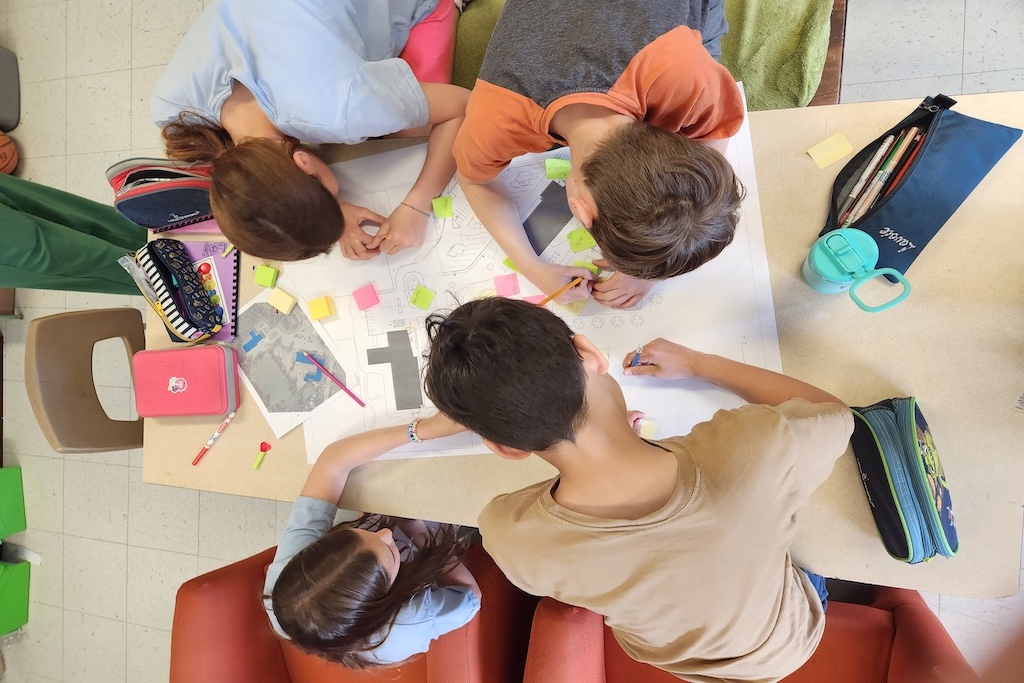Local Leadership for Climate Adaptation (LLCA)
In June 2024, GMF launched its LLCA initiative. Funded by the Government of Canada through the National Adaptation Strategy as part of a framework to build climate resilience and strategically reduce the risks that come with climate change impacts, LLCA provides tailored funding to help municipalities plan, test and implement local climate adaptation solutions. Municipalities know there is no transition to a prosperous, net-zero economy without building resilience along the way, and LLCA is making the timely investments to protect the communities that Canadians call home.
Overview
The Local Leadership for Climate Adaptation (LLCA) initiative delivers funding and capacity building where the need is greatest, and where a single, strategic investment can make the most difference. LLCA mobilized quickly, with GMF receiving the funds in April 2024 and launching the first calls for applications in June. The initiative was met with clear demand from municipalities and their partners. In its first nine months of operation, LLCA invested $36.7 million to build front-line resilience in cities and communities from coast to coast to coast. Calls for funding resulted in more than 290 applications that exceeded the available funding for the fiscal year.
Meanwhile, LLCA hosted topical discussions with external experts, introduced new capacity-building supports to accelerate adoption and improve local project implementation, and moved quickly to establish the internal infrastructure needed to sustain long-term adaptation efforts. It assembled an advisory table on private sector finance, bringing some of the leading financial voices in the country into conversations on innovative financing models for municipal climate adaptation.
To build capacity, LLCA launched two communities of practice that have brought together 130 municipal leaders, welcomed nearly 200 participants to a new course on climate resilience through asset management, hosted a webinar on national flood resilience standards for municipal climate planning, held a workshop on inclusive adaptation, introduced a climate-ready assessment tool to help cities identify specific steps to boost local resilience, and engaged 15 municipalities and their local partners in tailored coaching programs.
Vulnerable populations face disproportionate impact due to climate change. From socio-economic disadvantages to infrastructure deficits, marginalized, under resourced and equity deserving communities are at higher risk in a climate emergency. LLCA is the first GMF initiative to embed Reconciliation, Anti-Racism, Equity and Inclusion into its design, and it has made meaningful progress on Reconciliation in consultation with its Reconciliation Advisory Committee, having created both a Reconciliation Framework and an Implementation Plan. The Reconciliation Framework outlines the long-term vision, goals, and strategic direction of LLCA and is designed to guide the integration of Indigenous perspectives into municipal climate adaptation efforts, with the aim of fostering stronger relationships, collaboration, and climate resilience across communities. The Implementation Plan details a phased, long-term approach to operationalizing the Framework between 2025 and 2029, and beyond. Furthermore, nine LLCA approved projects are led by, or in partnership with, Indigenous communities; six funded projects are accessing coaching supporting Indigenous engagement and Reconciliation; 67% of LLCA's Capacity Development Partner Grant activities plan on reaching Indigenous communities with 12 Indigenous communities already participating in CDPG activities, and the GMF team has developed three Reconciliation-related knowledge products.
Key results
- $17 million for 48 projects that reduced local climate risk, strengthened relationships between municipalities and Indigenous communities, enabled nature-based solutions as a key component of climate risk management and provided direct benefits to equity-deserving or marginalized populations
- $13.5 million to 34 non-profit organizations to deliver local climate adaptation training capacity development, project support and resource development
Photo by Association forestière des deux rives. Courtesy of CRE - Capitale-Nationale.



